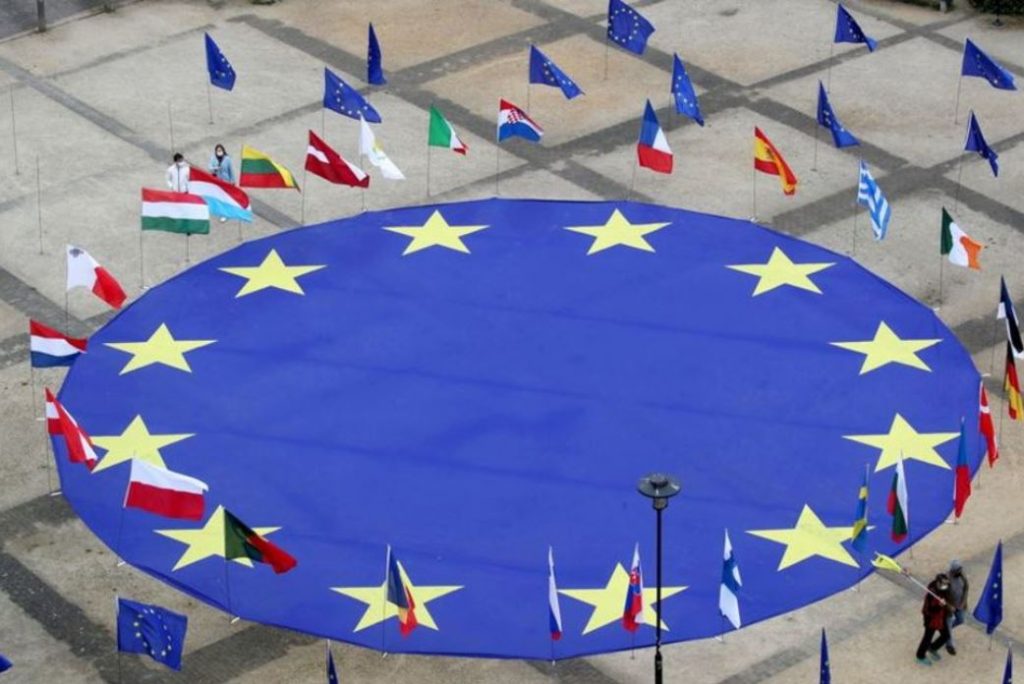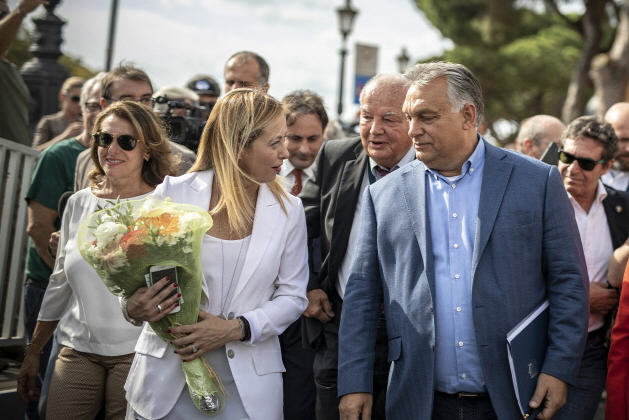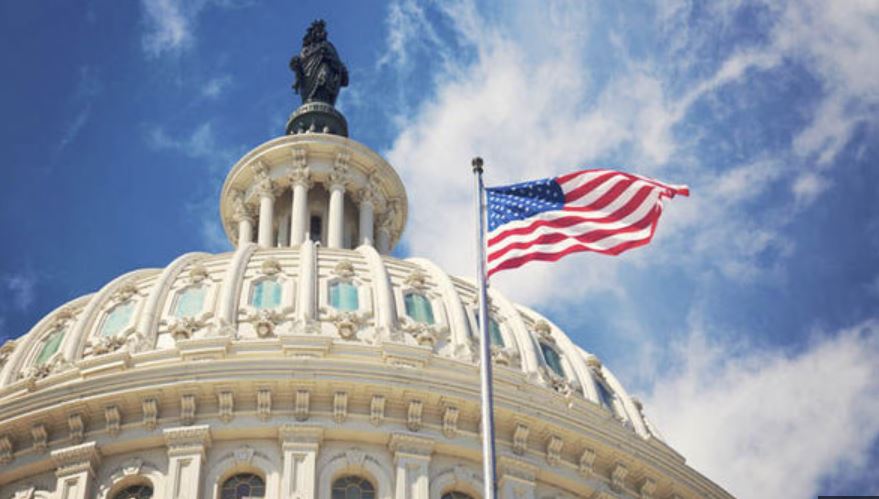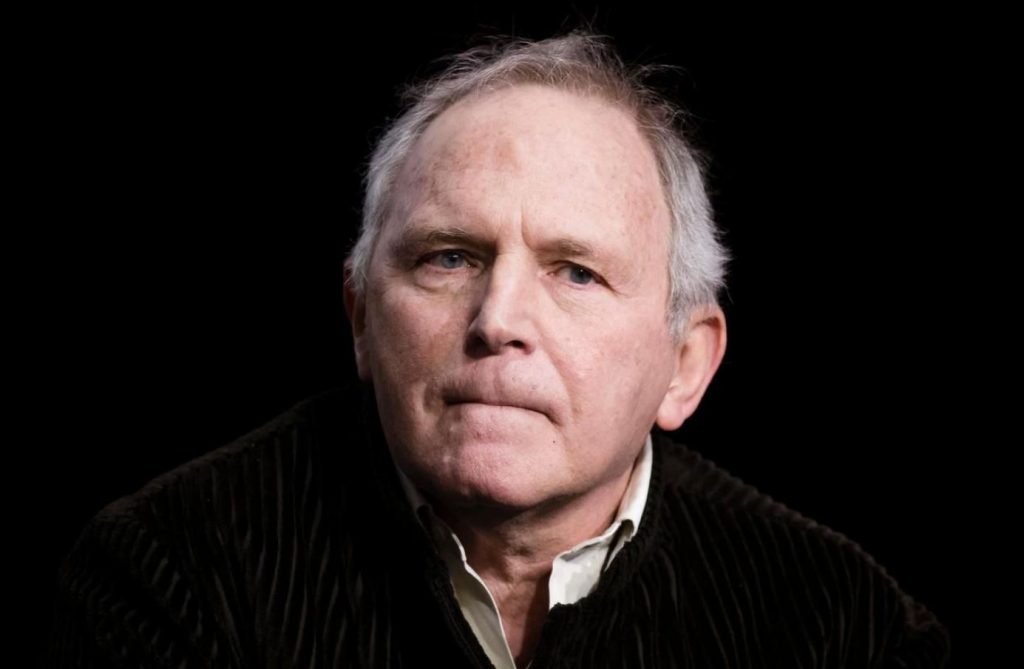French MEP Bernard Guetta (Renew Europe) talks about the European Union entering the phase of political unity and future fights between its member states. He also shares his views on Viktor Orbán’s EP reform proposal, the joint declaration of far-right EU forces and what he thinks is at stake for the European Union at next year’s parliamentary elections in Hungary.
Host: Balázs Csekő
Despite some ups and downs, one and a half year of the Covid19 crisis couldn’t damage the shape of the European Union. On the contrary, the Union is at the dawn of a new era. After the initial stages of the common market and a common currency, the European project is currently entering its third phase: the political unity.
Three phenomena of recent years have helped to pave the European road to the latest stage. “Mr Trump, Mr Brexit, and Mr Corona”, the politician said.
The presidency of Donald Trump convinced even the most Atlanticist member states of the EU that the creation of a European common defence policy can’t wait any longer as the American protection should not be taken for granted. A similar wakeup-call for the EU was represented by Brexit. The 27 EU countries understood immediately that only by showing unity could the dismantling of the Union be avoided. The covid crisis gave the final push to all member states, including Germany, that an economic restart is required.
Formerly a taboo subject, the EU decided to borrow a large amount of money, strengthen its economies and set in motion a recovery plan for the continent. In addition, the EU Commission decided to make a political decision and put on the table a plan to fight climate change.
“This is a new Union. This state will last at least 15 to 20 years. It will be very difficult and long,” the MEP stated.
Everybody sticking to the plan?
Due to major challenges, serious clashes are expected between member states. Fights could characterize major issues like the common defense, industrial policies or the measures to be taken regarding climate change.

Photo credit: Yves Herman, File Photo, Reuters
“We all agree upon the establishment of a common defense, but what kind of defense do we want? The same thing for the industrial policies. Where will we build the new factories? In Hungary or Germany? In Germany or Finland? In Spain or Sweden?”
Especially controversial could be the plan to increase the oil price for private cars. While the French government is strictly opposing the idea, other member states are clearly speaking out for such a move. “We will have big fights, but these will be the proof of the EU entering the phase of political unity.”
Reforming Europe?
The debate about Europe’s future is already under way. The latest reform proposal was put on the table by more than a dozen far-right European parties, led by Hungarian PM Viktor Orbán’s Fidesz. A “joint declaration” aiming to “reform” the European Union and to fight the creation of a “European superstate” was published, among others, with the signatures of Matteo Salvini, Giorgia Meloni, Marine Le Pen, Jarosław Kaczyński and Santiago Abascal.
Although Mr Guetta didn’t approve the text, he definitely sympathized with some of the circumstances surrounding the declaration. Just like the geographical composition of the 16 far-right parties.
“Six parties are from the former Soviet bloc, ten from Western Europe. The idea that there is now two Europes, a reactionary in the East and a progressive, modernist in the West, is completely wrong.”

Photo credit: Balázs Szecsődi, MTI
The political stage is almost identical in both parts of the continent. Two far-right forces are dominating in both Eastern (Fidesz, PiS) and Western Europe (Lega, Rassemblement National). Nevertheless, changes in the political constellations of all these countries are not to be ruled out. In fact, Mr Guetta is optimistic that there is a real chance that the opposition can defeat both prime minister Viktor Orbán in Hungary and the PiS government led by Mr Kaczyński in Poland in the upcoming parliamentary elections.
To the question whether the Hungarian opposition will be able to take its electorate to the polling stations, he responded: “Mr Orbán can monopolize the media, and do almost everything. He can lie every hour and every day, as he does, except changing Hungary in a real dictatorship without elections.”
Hungary – a ‘democrature’
With civil liberties continuously shrinking in Hungary, a lot is at stake for the EU when the country’s citizens get to the polling stations in the spring of 2022. What to do with a ‘democrature’* within the EU?
“I don’t like the idea to exclude Hungary from the European Union, because I am confident that Viktor Orbán doesn’t represent the entire country,” the politician said.
“The future of the EU is in the hands of the Hungarians. It is in Budapest, not in Brussels, not in Paris or Berlin,” he added.
Orbán’s EP reform proposal
The MEP doesn’t share the Hungarian prime minister’s reform proposal regarding the European Parliament. “National parliaments are rather strong in the EU member states and we have to strengthen the EP. There is lack of real democracy in the EU.”

Photo credit: Getty Images
However, the EU is a democracy, but a “too complicated one”. It’s never a “good sign” for democracy, when the institutions are unclear for the citizens, but this is true for the current EU.
Therefore, the former journalist proposes a political system similar to the US. “We should have an executive power and a legislative one with clear responsibilities for the Congress and the Presidency. It will be much clearer and so much more democratic.”
*a mix of the French words for democracy and dictatorship
Cover photo credit: Balázs Mohai, EPA

Bernard Guetta is a French journalist and Member of the European Parliament (Renew Europe) since 2019. He worked for several media outlets, among others L’Expansion, Le Nouvel Observateur, L’Express and La Repubblica. He was a correspondent in Warsaw and Moscow. In 2019, he published a book with the title “The Hungarian investigation”, handling the topic of far-right forces in power across Central Europe. By his father’s side, he is the half-brother of songwriter and DJ David Guetta. Twitter: @guetta_en
Photo credit: Le Parisien



